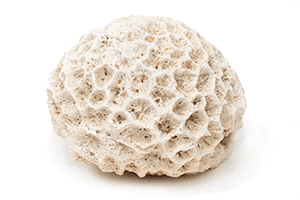SANDRA BEN-JOSEPH is a hard-working, energetic vegetarian who owns and operates Natural Solutions, Etc., a health food store in El Paso, Texas. But her lifestyle wasn’t always so healthy, and like many others who find themselves turning to supplements and to alternative and complementary medicine, Sandra faced an acute health crisis—at a very young age. At 25 she became what she calls “an IUD statistic.” She had a complete hysterectomy and overnight she became, biologically speaking, an older woman. Her loss of estrogen meant that Sandra, like most women who have been through menopause, was at far greater risk of developing osteopenia, which could lead to osteoporosis, and eventually bone fractures. A reporter for Healthy Living interviewed Sandra a few weeks ago.
“Although I started taking supplements, including calcium, when I was 30, I was diagnosed with osteopenia at 37. At the time, I was taking a number of things, including calcium and magnesium. We became distributors of [a well-known brand of supplements] in 1994, so I started taking their calcium products at 2,200 milligrams a day, but I still had pain in my bones, and my bone density wasn’t improving,” she says. But at 37, Sandra was already eating healthy and getting plenty of exercise. She just felt she wasn’t getting enough bone-building benefits from her supplements.
She told HL, “So when my husband, Eliezer Ben-Joseph, N.D., introduced me to Coral Complex, I went on therapeutic values, taking 9 to 12 capsules a day. In ten months I had a 4 percent improvement in my bone density. My allopathic doctor couldn’t believe it. Without taking Fosomax!” Stephen Page, Ph.D., director of research at the University of Cincinnati College of Medicine, is currently studying bone density loss and its effects on stroke patients. According to Dr. Page, the good news is that osteopenia, the precursor to osteoporosis, can be reversed—usually through a combination of weight-bearing exercise, a calcium-rich diet, and supplements. Experts recommend bone density testing. A reading of “0” on the T-scale means you are within the normal range for people of your gender in your age group. The positive or negative measurement number (-2, +1, etc.) is a measurement of your deviation from the standard.
No matter where you are on the scale, most bone health experts agree that if you take 1,000 to 1,500 mg of calcium a day, plus vitamin D, you can reduce your fracture risk between 20 to 40 percent. “There is a healthy debate in the medical community about which calcium is best absorbed,” according to Dr. Marc Drezner, M.D., of the American Society for Bone and Mineral Research. Studies show that fossilized stony coral, or “above sea” coral, such as that found in Coral Complex, is more easily absorbed because coral calcium becomes ionic in water. Coral calcium benefits the overall health of the human body is taken consistently.
Sandra Ben-Joseph says, “We don’t jump on every bandwagon there is. For instance, we don’t have 20 kinds of vitamin C. We only carry Coral Inc. [coral calcium]. We don’t carry the marine (below sea) coral products because they upset the ecosystem. This is above-sea coral and besides, what Coral Inc. manufactures is the best on the market,” says Sandra.
According to the World Health Organization, 40 percent of postmenopausal women (women over 60) will develop osteoporosis in their lifetime.
REFERENCES
Hirota, Y. & Sugisaki, T. “Effects of the coral calcium as an inhibitory substance against colon cancer and its metastasis in the lungs.”
Nutrition Research, 2000;20(11):1557-67.
RESOURCES
Coral Complex is available at many health food stores nationwide. To find a store in your area, call the company toll-free at (800) 882- 9577. We also urge you to visit their website at www.coralcalcium.com for information about this vital mineral-rich supplement.
12 The Doctors’ Prescription for Healthy Living / Volume 9, Number 5
